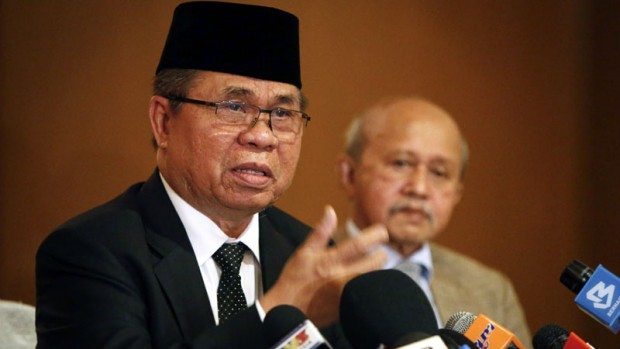
Murad Ebrahim —AP
DAVAO CITY, Davao del Sur, Philippines — The former leader of the Philippines’ largest Muslim insurgency group on Sunday urged the militants behind the series of attacks in Mindanao to lay down their arms and join the former separatist rebels in developing the new Muslim homeland that they now govern.
Murad Ebrahim, now the interim chief minister of the Bangsamoro Autonomous Region in Muslim Mindanao (BARMM) and who once led the 12,000-strong Moro Islamic Liberation Front (MILF) through decades of insurgency, told the Inquirer that despite the militants’ defeat in 2017 after the five-month siege of Marawi City, there remained a small group of foreign jihadists in Mindanao.
On Friday, eight people were killed and 22 others wounded in bomb attacks at a military camp in Indanan, Sulu, the bailiwick of the bandit group Abu Sayyaf.
The Abu Sayyaf continued to operate even after its leader, Isnilon Hapilon, reportedly the “emir” of the Islamic State (IS) province in Southeast Asia, and Omarkhayam Maute, one of the leaders of the Maute terrorist group, were killed by the military in October 2017 at the end of the terrorist siege of Marawi.
Killed in the Indanan blasts were the two bombers, three soldiers and three civilians. The bombers remained unidentified as of Sunday.
IS claims responsibility
The US company SITE Intelligence Group that tracks online activity of Muslim militant groups globally, reported that the IS East Asia province had issued a statement claiming responsibility for the Indanan attack hours after the explosions.
IS, however, usually claims responsibility for almost any attacks, even insignificant ones, as a strategy to make known its continued existence despite its defeat in the Middle East.
Murad said the militants, numbering 20 to 30, with few foreign jihadists scattered all over Mindanao, were tied to local militants who were forced to join due to financial necessity.
He said the militants were busy recruiting young fighters, boys aged 13 to 15, enticing them with money.
“We are open for dialogue with them because we feel and believe most of these splinter groups were frustrated with the government,” Murad said, referring to Abu Sayyaf and the Bangsamoro Islamic Freedom Fighters (BIFF).
The BIFF, led by Abu Toraife, split from the MILF in 2008 after refusing to drop its separatist bid for an independent state in the south.
Terrorist organization
The Abu Sayyaf, founded in the early 1990s, is notorious for kidnappings, bombings and beheadings in southern Philippines. The group is blacklisted by the United States as a foreign terrorist organization.
“We see even though with these foreign elements, they are still open for negotiation,” Murad added, disclosing that some militants had been tracked by MILF intelligence in heavily populated areas of Mindanao.
Murad said the MILF was confident that it could get rid of the militants because they had no support from the people.
“We are offering them, if they want to join … we are open to accommodate them. Our agreement with the government there will be declaration of general amnesty. But this will cover [only] political crimes,” he said.
Those who took part in the siege of Marawi, where more than a thousand people were killed in five months of fighting, will not be covered by the general amnesty, he added.
The International Crisis Group, an independent organization working to prevent wars and shape policies, however, cited in a report released on June 27, a day before the suicide attack in Sulu, that Islamic militancy remained a threat.
Transition authority
“The [IS]-linked groups may be weakened and their numbers small, certainly compared with the MILF itself. But their attacks could erode confidence in the transition authority and they could benefit from MILF splinters or disillusioned former fighters,” the group said.
“While even a well-administered new autonomous region is unlikely to completely eradicate militancy, it can help address its main drivers. Its failure, however, would lead to disenchantment and frustration that could reinvigorate jihadist and other violent groups and prolong the tribulations of Muslim Mindanao,” it added.

No comments:
Post a Comment
Note: Only a member of this blog may post a comment.